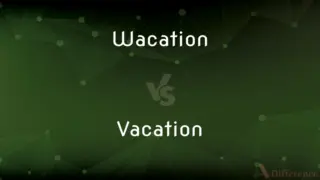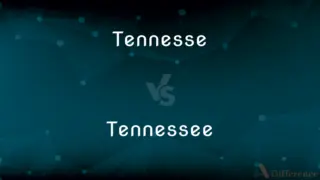Analisis vs. Analysis — Which is Correct Spelling?
By Tayyaba Rehman — Updated on March 21, 2024
"Analisis" is a misspelling. The correct term is "Analysis," which refers to detailed examination or study of something.
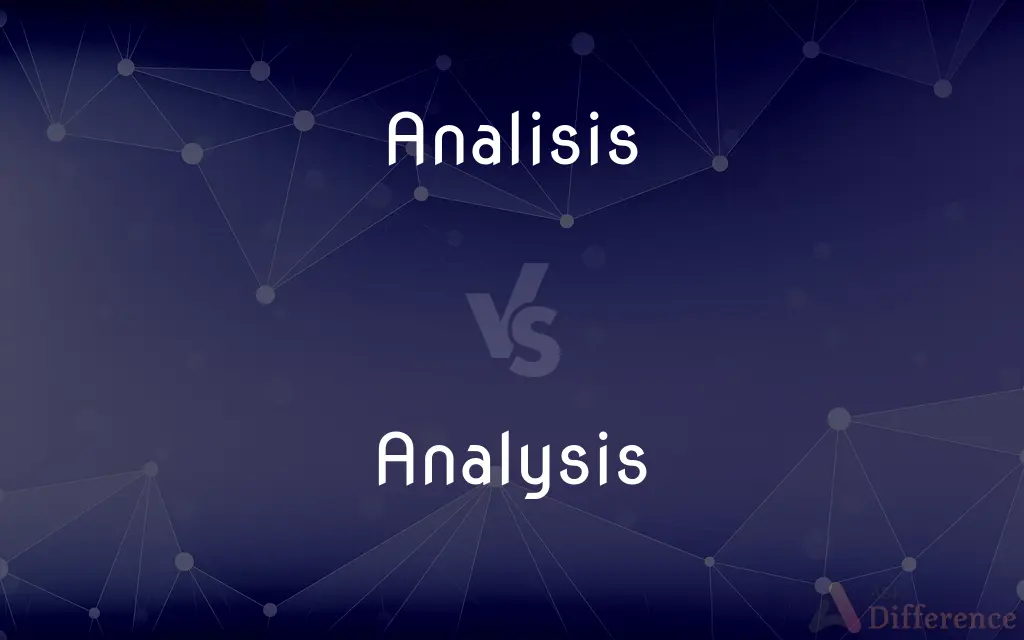
Table of Contents
Which is correct: Analisis or Analysis
How to spell Analysis?

Analisis
Incorrect Spelling

Analysis
Correct Spelling
ADVERTISEMENT
Key Differences
Always remember the "y" in "Analysis."
"Analisis" has one "s" in the middle, while "Analysis" has two.
"Analysis" ends similarly to "paralysis," but "Analisis" doesn't.
Think of "analyze," then drop the "e" and add "is" to get "Analysis."
"Analysis" has three syllables, while "Analisis" would sound like it has four.
ADVERTISEMENT
How Do You Spell Analysis Correctly?
Incorrect: We should conduct an analisis of market conditions before investing.
Correct: We should conduct an analysis of market conditions before investing.
Incorrect: Her thesis included a comprehensive analisis of historical documents.
Correct: Her thesis included a comprehensive analysis of historical documents.
Incorrect: The analisis of the sample revealed some interesting findings.
Correct: The analysis of the sample revealed some interesting findings.
Incorrect: The report requires a detailed analisis to understand the trends.
Correct: The report requires a detailed analysis to understand the trends.
Incorrect: His job involves data analisis to inform business decisions.
Correct: His job involves data analysis to inform business decisions.
Analysis Definitions
A process of studying the nature of something.
Her analysis of the poem revealed deeper meanings.
Interpretation and understanding of data or problems.
The data went through rigorous analysis before the report was published.
Analysis is the process of breaking a complex topic or substance into smaller parts in order to gain a better understanding of it. The technique has been applied in the study of mathematics and logic since before Aristotle (384–322 B.C.), though analysis as a formal concept is a relatively recent development.The word comes from the Ancient Greek ἀνάλυσις (analysis, "a breaking-up" or "an untying;" from ana- "up, throughout" and lysis "a loosening").
Detailed examination of the elements or structure of something
Statistical analysis
An analysis of popular culture
Short for psychoanalysis
Other schools of analysis have evolved out of the original disciplines established by Freud
The separation of an intellectual or material whole into its constituent parts for individual study.
The study of such constituent parts and their interrelationships in making up a whole.
A spoken or written presentation of such study
Published an analysis of poetic meter.
The separation of a substance into its constituent elements to determine either their nature (qualitative analysis) or their proportions (quantitative analysis).
The stated findings of such a separation or determination.
A branch of mathematics principally involving differential and integral calculus, sequences, and series and concerned with limits and convergence.
The method of proof in which a known truth is sought as a consequence of a series of deductions from that which is the thing to be proved.
(Linguistics) The use of function words such as prepositions, pronouns, or auxiliary verbs instead of inflectional endings to express a grammatical relationship; for example, the cover of the dictionary instead of the dictionary's cover.
Psychoanalysis.
Systems analysis.
(countable) Decomposition into components in order to study (a complex thing, concept, theory etc.).
(countable) The result of such a process.
The mathematical study of functions, sequences, series, limits, derivatives and integrals.
Mathematical analysis
Proof by deduction from known truths.
The process of breaking down a substance into its constituent parts, or the result of this process.
The analytical study of melodies, harmonies, sequences, repetitions, variations, quotations, juxtapositions, and surprises.
A resolution of anything, whether an object of the senses or of the intellect, into its constituent or original elements; an examination of the component parts of a subject, each separately, as the words which compose a sentence, the tones of a tune, or the simple propositions which enter into an argument. It is opposed to synthesis.
The separation of a compound substance, by chemical processes, into its constituents, with a view to ascertain either (a) what elements it contains, or (b) how much of each element is present. The former is called qualitative, and the latter quantitative analysis.
The tracing of things to their source, and the resolving of knowledge into its original principles.
The resolving of problems by reducing the conditions that are in them to equations.
A syllabus, or table of the principal heads of a discourse, disposed in their natural order.
The process of ascertaining the name of a species, or its place in a system of classification, by means of an analytical table or key.
An investigation of the component parts of a whole and their relations in making up the whole
The abstract separation of a whole into its constituent parts in order to study the parts and their relations
A form of literary criticism in which the structure of a piece of writing is analyzed
The use of closed-class words instead of inflections: e.g., `the father of the bride' instead of `the bride's father'
A branch of mathematics involving calculus and the theory of limits; sequences and series and integration and differentiation
A set of techniques for exploring underlying motives and a method of treating various mental disorders; based on the theories of Sigmund Freud;
His physician recommended psychoanalysis
A detailed examination of elements or structure.
The scientist conducted an analysis of the soil sample.
Breaking down of a whole into its parts to find out their nature.
A financial analysis showed the company's strengths and weaknesses.
A logical reasoning to establish a cause.
His analysis pointed out the flaws in the argument.
Analysis Meaning in a Sentence
Analysis of the data can reveal patterns and insights.
The book includes a critical analysis of contemporary politics.
She excels in the analysis of complex problems.
The research paper was praised for its thorough analysis.
The scientist published his analysis of the environmental samples.
The team's performance improved after an analysis of their previous games.
The project concluded with an in-depth analysis of the results.
Her analysis of the novel was insightful and detailed.
In literary studies, textual analysis is a common method.
Statistical analysis helps in making informed decisions.
Performing a SWOT analysis can be very revealing for businesses.
A cost-benefit analysis is essential for budgeting projects.
The analysis of survey responses indicated a change in public opinion.
A forensic analysis was conducted to solve the case.
The seminar focused on the analysis of historical events.
He shared his analysis of the economic trends with the team.
Learning from the analysis of mistakes can lead to improvement.
Writing a film analysis requires understanding of cinematic techniques.
She conducted an analysis of the artwork's composition and themes.
The analysis of user data is crucial for improving the app.
Analysis Idioms & Phrases
Final analysis
The conclusion or summary after considering all the information.
In the final analysis, the benefits of the new policy outweighed the drawbacks.
Gap analysis
A method of assessing the differences between actual performance and potential or desired performance.
The consultant recommended a gap analysis to identify areas for improvement.
Cost-benefit analysis
A process by which business decisions are analyzed, weighing their costs against their benefits.
Before launching the new product, they conducted a thorough cost-benefit analysis.
SWOT analysis
A strategic planning technique used to identify Strengths, Weaknesses, Opportunities, and Threats related to business competition or project planning.
The startup did a SWOT analysis to understand their position in the market.
Paralysis by analysis
Overanalyzing or overthinking a situation so much that a decision or action is never taken.
The team couldn't move forward with the project, stuck in paralysis by analysis.
Content analysis
A research method used for the subjective interpretation of the content of text data through the systematic classification process of coding and identifying themes or patterns.
The media study involved a content analysis of news articles.
Data analysis
The process of examining, cleaning, transforming, and modeling data with the goal of discovering useful information, informing conclusions, and supporting decision-making.
The researcher spent weeks on data analysis to ensure the findings were accurate.
Root cause analysis
A method used to identify the underlying reasons for a problem or issue.
After the system failure, a root cause analysis was conducted to prevent future issues.
Risk analysis
The process of identifying and analyzing potential issues that could negatively impact key business initiatives or projects.
Before expanding internationally, the company performed a detailed risk analysis.
Sentiment analysis
The process of determining the emotional tone behind a series of words, used to gain an understanding of the attitudes, opinions, and emotions expressed within an online mention.
The marketing team used sentiment analysis to understand customer reactions to their ad campaign.
Trend analysis
A method of analyzing data to identify patterns or trends over time.
The economist used trend analysis to forecast future market movements.
Competitive analysis
An assessment of the strengths and weaknesses of current and potential competitors.
As part of their strategy, they conducted a competitive analysis to better understand the market landscape.
Break-even analysis
A calculation that identifies the point at which revenue received equals the costs associated with receiving the revenue.
The break-even analysis showed they needed to sell 200 units to cover production costs.
Pestle analysis
A tool used to analyze the external macro-environmental factors that may impact an organization. The factors include Political, Economic, Social, Technological, Legal, and Environmental.
The strategic planning team used a PESTLE analysis to consider external factors affecting their industry.
Common Curiosities
Why is it called Analysis?
It's called "Analysis" from the Greek word "analusis," meaning "a breaking up."
Which vowel is used before Analysis?
The word "an" is commonly used, as in "an analysis."
What is the verb form of Analysis?
The verb form is "analyze."
What is the root word of Analysis?
The root word is the Greek "analusis."
Which preposition is used with Analysis?
"Of" is commonly used, as in "analysis of data."
Is Analysis a noun or adjective?
"Analysis" is a noun.
What is the plural form of Analysis?
The plural form is "analyses."
What is the pronunciation of Analysis?
It's pronounced as /əˈnælɪsɪs/.
Which conjunction is used with Analysis?
Conjunctions like "and" or "or" can be used, depending on the sentence.
Is Analysis an adverb?
No, "analysis" is not an adverb.
Is Analysis a vowel or consonant?
"Analysis" is a word that contains both vowels and consonants.
How many syllables are in Analysis?
There are four syllables.
What is the singular form of Analysis?
"Analysis" is the singular form.
Is Analysis an abstract noun?
Yes, "analysis" is an abstract noun.
Is Analysis a negative or positive word?
Neutral. It indicates a process of examination.
Is the word Analysis imperative?
No, "analysis" is a noun and cannot be imperative.
What is the first form of Analysis?
The noun "analysis" doesn't have verb forms like first, second, or third.
How do we divide Analysis into syllables?
It can be divided as a-nal-y-sis.
What is a stressed syllable in Analysis?
The stressed syllable is "nal."
Which determiner is used with Analysis?
Determiners like "this," "that," "my," or "our" can be used.
What is the second form of Analysis?
Again, "analysis" doesn't have verb forms.
Is Analysis a collective noun?
No, "analysis" is not a collective noun.
What is the opposite of Analysis?
The opposite could be "synthesis."
How is Analysis used in a sentence?
"His detailed analysis of the situation helped us understand the underlying issues."
Which article is used with Analysis?
The articles "a" or "an" can be used, based on the sound that follows.
Is Analysis a countable noun?
Yes, you can have multiple analyses.
Is the Analysis term a metaphor?
No, "analysis" is not typically used as a metaphor.
What part of speech is Analysis?
"Analysis" is a noun.
What is another term for Analysis?
Another term could be "examination" or "study."
What is the third form of Analysis?
As mentioned, "analysis" doesn't have verb forms.
Share Your Discovery
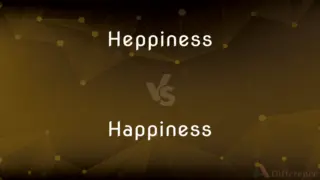
Previous Comparison
Heppiness vs. Happiness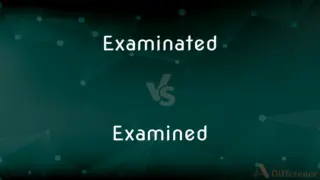
Next Comparison
Examinated vs. ExaminedAuthor Spotlight
Written by
Tayyaba RehmanTayyaba Rehman is a distinguished writer, currently serving as a primary contributor to askdifference.com. As a researcher in semantics and etymology, Tayyaba's passion for the complexity of languages and their distinctions has found a perfect home on the platform. Tayyaba delves into the intricacies of language, distinguishing between commonly confused words and phrases, thereby providing clarity for readers worldwide.





























